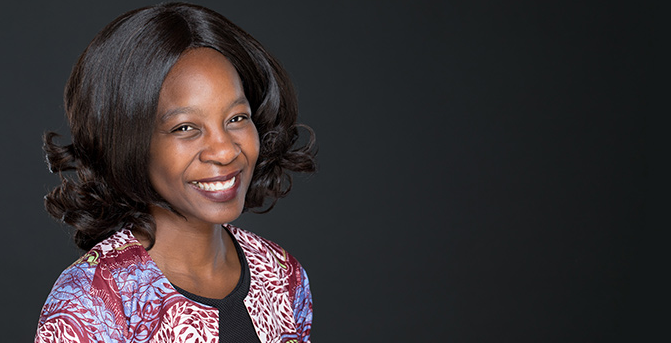Health

This doctor is determined that no mother should lose her baby at birth
Dr Salome Maswime is the mother of two playful little boys. She's also a specialist who's committed to maternal and foetal medicine, in South Africa and now abroad. Here's how she’s making a difference.
If women are known for multitasking, then Dr Salome Maswime takes the cake. This high-achieving Specialist Obstetrician and Gynaecologist was granted a Discovery Foundation MGH Fellowship Award to further her training and studies at the Massachusetts General Hospital Center for Global Health in Boston, United States.
Her first priorities after her year abroad are to work closely with the Perinatal HIV Research Unit and to start a Maternal Health Research Unit that will focus on health outcomes, clinical guidelines and steering health policies.
A heart for saving stillborns
But her journey to this point has been a challenging climb, with lots to juggle. Being a clinician scientist means she generally split her time between treating patients at Chris Hani Baragwanath Academic Hospital in Johannesburg and conducting much-needed research that can improve health outcomes for mothers and babies. Treating high-risk pregnancies and making critical surgical decisions on a daily basis was part of her clinical work, and her heart goes out to mothers with stillborn babies.
"Some days you're able to save some. There are good days where you operated at the right time, you made the right decision and something in you says, ‘Let’s keep going.' So why devote so much energy to Academic Medicine as well? “I love my patients and working in the labour ward,” Dr Maswime says, "but it is one person at a time."
The fact is - the science around stillbirths and why they happen is not advanced enough to give clear answers. That’s where the importance of scientific research comes in. With much of her work in gynaecology and deliveries published in peer-reviewed journals, it is Dr Maswime’s goal to make a real mark in maternal and foetal medicine. In particular, she wants to investigate differences between the form and structure of the placenta of mothers living with HIV and of those who are not infected.
Compartmentalising to get things done
When not operating, consulting or studying, Dr Maswime is also a lecturer at the University of Witwatersrand, where she heads up research committees and supervises the studies of medical students. To get to everything, she says she compartmentalises her work. And when she does not have enough hours during the day, she wakes up earlier to finish what has to be done - always making time to play with her two young sons.
The humble but driven Dr Maswime has other passions too: arts and music. She writes plays, acts and even plays the trumpet! She claims that expressing herself creatively is what builds her energy to excel in her many roles as wife, mother, doctor, teacher and scientist. We caught up with her to hear more.
What first motivated you to become a doctor?
Growing up, I knew I wanted to become a doctor. But I also wanted to study drama because of my passion for the arts. Towards the end of high school, it just made more sense to study medicine because I felt I could contribute more to humanity. I quickly got frustrated and wanted to change to performance arts. I was strongly advised to finish my medical degree. So, I spent most of my years in medical school studying during the week and creating drama productions over weekends."
What's your experience at MGH been like so far?
It's been amazing to meet some of the best scientists and clinicians in the world. It is a very welcoming and inspiring environment. Everyone is busy doing something big, on the cutting edge of medicine. I have been introduced to global leaders in different fields, all willing to listen to what I am doing and how they can contribute to it.
I have also seen marked differences between the way we interact with our patients, and the patient centred approach at the Massachusetts General Hospital. There are basic practices that do not cost anything which we could easily adapt to improve women’s experiences in the public sector. The use of technology in avoiding foetal complications has also been good to observe. I find this exposure enriching and inspiring.

Do you have a quote or reading that inspires you?
I find this proverb inspirational: 'A journey of a thousand miles begins with a single step.'
It is this kind of single-minded perseverance that’s setting Dr Maswime up to improve clinical practice and advance public health in South Africa. On her return from the United States, she’s positive that she’ll have even more to give back and even more to do: "I see myself becoming a research leader in the field of women’s health and contributing as a scientist to advancing knowledge locally and internationally."
SUBSCRIBE TO THE DISCOVERY FOUNDATION NEWSLETTER
ARE YOU A DISCOVERY ALUMNI? Update your details by clicking here.